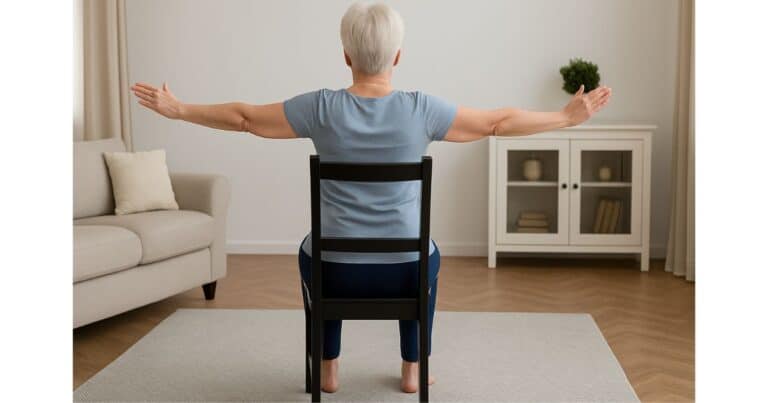Have you noticed your elderly loved one asking you to repeat yourself more often, or that the television volume seems to creep higher every day? These small changes can be easy to dismiss, but they are usually the first, subtle whispers of hearing loss.
Recognizing the signs early is crucial because untreated hearing loss does more than just muffle sound; it can lead to social isolation, frustration, and even impact cognitive health.

By learning these ten common signs, you can take the first step toward reconnecting your loved one with the world of conversation, laughter, and connection they might be missing.
Hearing Loss is Common for Aging Adults
Hearing loss can’t be seen, so it’s usually noticed as a change in behavior.
You might notice that your older adult frequently asks you to repeat yourself, keeps the TV volume very loud, or complains that you always mumble.
If you notice these or other signs of hearing loss, it’s essential to visit the doctor for proper diagnosis and treatment as soon as possible.
After all, untreated hearing problems increase the risk of dementia.
We explain what causes hearing loss, why treating hearing loss is important for brain health, and share the 10 most common signs of hearing loss to help you spot it early.
What Causes Hearing Loss in Seniors?
Health conditions and exposure to loud sounds can cause hearing loss.
However, the older someone is, the more likely they are to experience age-related hearing loss, commonly referred to as presbycusis.
It’s a gradual hearing loss caused by age-related changes in the inner ear.
About one in three people in the U.S. aged 65 to 74 have hearing loss, and almost half of those aged 75 and older have difficulty hearing.
Treating Hearing Loss Prevents Brain Damage
If a hearing problem isn’t diagnosed and treated, it can lead to damage to the parts of the brain involved in hearing.
There are 3 main theories for why hearing loss is linked to cognitive decline:
- Cognitive load – the brain is too busy trying to hear to focus on memory or thinking
- Brain atrophy – unused parts of the brain can waste away
- Social isolation – being unable to hear may cause seniors to avoid socializing
Hearing Aid Use is a Predictor of Overall Health in Seniors
Research indicates that seniors who use hearing aids are significantly more likely to remain socially and physically active than those who don't. The simple act of making communication easier directly combats the tendency to withdraw from hobbies, family gatherings, and community events, thereby improving overall quality of life.
Hearing is a Brain Function
Hearing is actually a brain function. When the ears send a distorted or incomplete sound signal, the brain has to work much harder to fill in the gaps and make sense of it. This constant, extra cognitive effort can lead to profound mental exhaustion by the end of the day, even if the person hasn't been physically active.
The Link Between Hearing Loss and Cognitive Decline
This is one of the most critical findings in recent years. Significant studies have shown that untreated hearing loss is one of the most important modifiable risk factors for developing dementia. The theory is that social isolation and excessive cognitive load contribute to the brain's accelerated decline. Using hearing aids can help reduce this risk.
Untreated Hearing Loss Can Impact Balance and Fall Risk
Your ears do more than hear; the inner ear (the vestibular system) is your primary balance center. Even without vestibular damage, hearing loss affects spatial awareness. You're less aware of your sound environment, which provides subtle cues about your surroundings. Studies have shown that even a mild degree of hearing loss can triple the risk of an accidental fall.
VIDEO: The Top Signs of Hearing Loss in Seniors
10 Common Signs of Hearing Loss in Seniors
- Having a problem hearing over the telephone
- Having trouble following the conversation when two or more people talk at the same time
- Turning the TV volume up too high
- Straining to understand the conversation
- Having trouble hearing in a noisy background, like in a restaurant
- Complaining of dizziness, pain, or ringing in their ears
- Frequently asking people to repeat themselves
- Complaining that other people mumble or don’t speak clearly
- Misunderstanding what people say and not answering in an expected way
- Having trouble understanding when women or children talk
Other signs of hearing loss in seniors include personality changes, such as someone who used to be social but now doesn’t want to spend time around groups of people.
Sometimes, symptoms of hearing loss can be confused with those of dementia.
Conclusion
Recognizing these signs is the first and most crucial step toward making a meaningful difference in your loved one's life. Addressing hearing loss isn't just about improving their ability to hear a conversation; it's about reopening the door to social engagement, reducing the risk of loneliness, and protecting their overall well-being.
If several of these signs feel familiar, gently encourage a hearing test with an audiologist. This simple, proactive step isn't an endpoint; it's the beginning of a clearer, more connected, and joyful chapter for everyone involved.
Recommended for you:
- Reduce Dementia Risk by Treating Hearing Loss
- 10 Helpful Products for Hearing Impaired Seniors Increase Independence and Safety
- How to Get the Best Hearing Aids from the Audiologist
About the Author

Connie is the founder of DailyCaring.com and was a hands-on caregiver for her grandmother for 20 years. (Grandma made it to 101 years old!) She knows how challenging, overwhelming, and all-consuming caring for an older adult can be. She also understands the importance of support, especially in the form of practical solutions, valuable resources, and self-care tips.














Your text above contains a lot of truth, but you don’t address some of the truth that some of the population do not ennunciate properly and everybody has trouble understanding what is being said. The problem with this is that the identification of people needing hearing aides is skewed.
My personal hearing problem is that I recognize my (age 93) need for hearing aides and the two sets of devices I have tried did not help for two reasons. First, people who do not speak clearly mean that heaing aides dont help. Second is that the two sets I purchased worked satisfactorily for people who are minimally in need, I found that both sets did little to help. I discovered this by using a frequency testing website.- Using that, I could easily see that the devices were unable to increase sound enough.
If you think hearing loss could be an issue, should you schedule an appointment with your GP?
My husband David is 60 almost 61 is Diagnosed with here in lost. He has a hand time hearing the phone
We’re sorry to hear about your husband’s loss of hearing. In case it’s helpful, we found some products that are helpful for people with hearing impairment – https://dailycaring.com/10-helpful-products-for-hearing-impaired-seniors-increase-independence-and-safety/
My mother is 98 years old with dementia. She wears hearing aids. She says she still can’t hear. My question is, Does her hear worsen as she ages.. Is it the hearing aids or the dementia? I think she just doesn’t understand. I’ve taken her to get her ears checked and they just want me to keep buying hearing aids.
It’s possible that her hearing aids aren’t properly adjusted so they aren’t helping her to hear. But it’s also possible that she’s having trouble understanding or responding due to her dementia.
This article by Teepa Snow has some helpful explanations for why someone with dementia might seem to have difficulty with hearing (but they could be due to other reasons) – https://teepasnow.com/blog/5-additional-challenging-dementia-behaviors-explained/